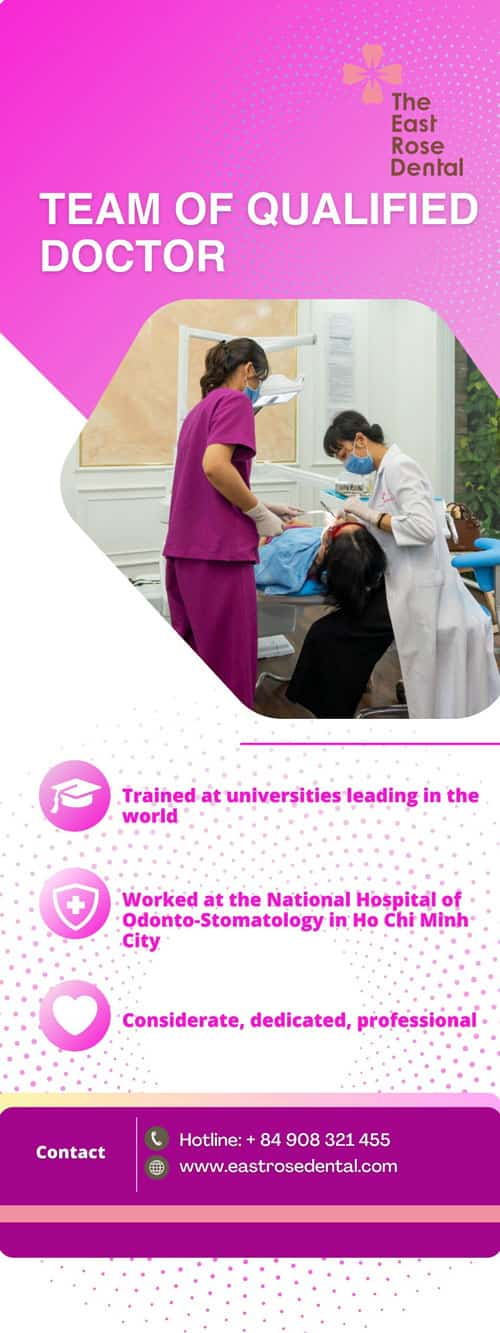10 effective and healthy ways to take care of your teeth
To keep your teeth healthy, you need proper care in quite a long time. Even if you are praised by people around you for having a beautiful smile with gleaming white teeth, do not be so subjective.
It is important to follow your daily dental care routine to protect your health in general and prevent any possible problems.
10 oral hygiene habits for a healthy and bright smile
1. Brush your teeth every night before bed
The advice of brushing your teeth at least 2 times a day is very familiar. However, many people ignore this advice and it is not good at all. Having good oral hygiene before bedtime will help you get rid of germs and plaque which build up throughout the day.
2. Brush your teeth properly
Brushing is also an important part of the oral care routine. Doing a poor job of brushing your teeth is almost as bad as not brushing at all. Therefore, pay attention to when brushing: you should move the brush in a circular motion gently to remove plaque.
Without proper hygiene, the plaque will begin to harden and build up, which in turn leads to periodontal, gum disease.
3. Pay attention to tongue cleaning
Not only does the plaque build up on teeth causing tartar, but can also build up on the tongue. It can be the reason for your bad breath and can lead to other oral health problems. Therefore, don't forget to brush your tongue every time you brush your teeth.
4. Use fluoride toothpaste
Choosing toothpaste is important for your oral health. The first factor when choosing a tooth cleaning product, aside from personal preference for the brand or the smell, prioritize toothpaste that contains fluoride.
This compound is a key ingredient in preserving your teeth and preventing a few other problems. Fluoride works by fighting germs that can lead to tooth decay, while also providing a protective barrier for your teeth.
5. Floss regularly

Many people think that regular brushing is enough for oral care but actually this is not true. You will still need to floss or toothpicks to clean the gaps between teeth. Flossing will gently take small pieces of food hidden in between the teeth that ordinary toothpicks cannot approach.
When the teeth are completely cleaned, gum irritation, plaque, and inflammation conditions will be significantly reduced.
6. Use mouthwash
There are many advertising videos that make the mouthwash a necessary product for every family. But in fact, many people still do not understand the effects of this product.
Mouthwash helps oral health in 3 ways:
- Remineralize teeth
- Reduce the amount of acid in the mouth
- Clean hard-to-brush areas in and around the gums.
Mouthwash is considered a fairly comprehensive “cleaning tool”. Therefore, if 12-year-old children and above, as well as the elderly are not used to dental floss or toothpicks when it comes to cleaning their teeth, this product will be especially helpful.
7. Drink plenty of water
Filtered water is always the best drink for our overall health and oral health. Also, as a general rule, you should drink water after every meal. This can help counteract the negative effects of acidic foods and beverages as well as before your next brush.
8. Eat crunchy fruits and vegetables
Instant food is very convenient but not friendly to the teeth. Fresh, crunchy dishes not only contain healthy fiber but are also the best choice for a beautiful smile.
In addition, experts also advise when feeding children, parents should not puree the food but let the baby get used to raw/ solid foods from an early age. This helps children know chewing, biting food will be very useful for oral health.
9. Limit sugar, acidic foods
When you eat sweets, the sugar turns into acid in your mouth, which can erode tooth enamel, leading to tooth decay. Acidic fruits like strawberries, citrus, pineapples, tea, and coffee also affect tooth enamel.
Of course, you do not need to completely avoid these foods or drinks but pay attention to gargle with water after enjoying them.
10. See your dentist at least 2 times per year
Even if you have a good daily oral routine, you should visit your dentist at least twice a year. The dentist not only helps you find and eliminate the risk of tooth decay but can also identify underlying problems and offer appropriate and effective prevention or treatment.
Reference source
Services
Working Time
- Monday - Friday: 08:00 - 19:00
- Saturday: 08:00 - 18:00
- Sunday closed
Contact Info
- Hotline 1: (+84) 908 321 455
- Hotline 2: (+84) 931 857 885
- Mobile: (+84) 8 3925 8778
- Phone: (+84)2 838 258 778
- info@dentalrose.net
- rosedentalclinicvn@gmail.com
 English
English  Tiếng Việt
Tiếng Việt

